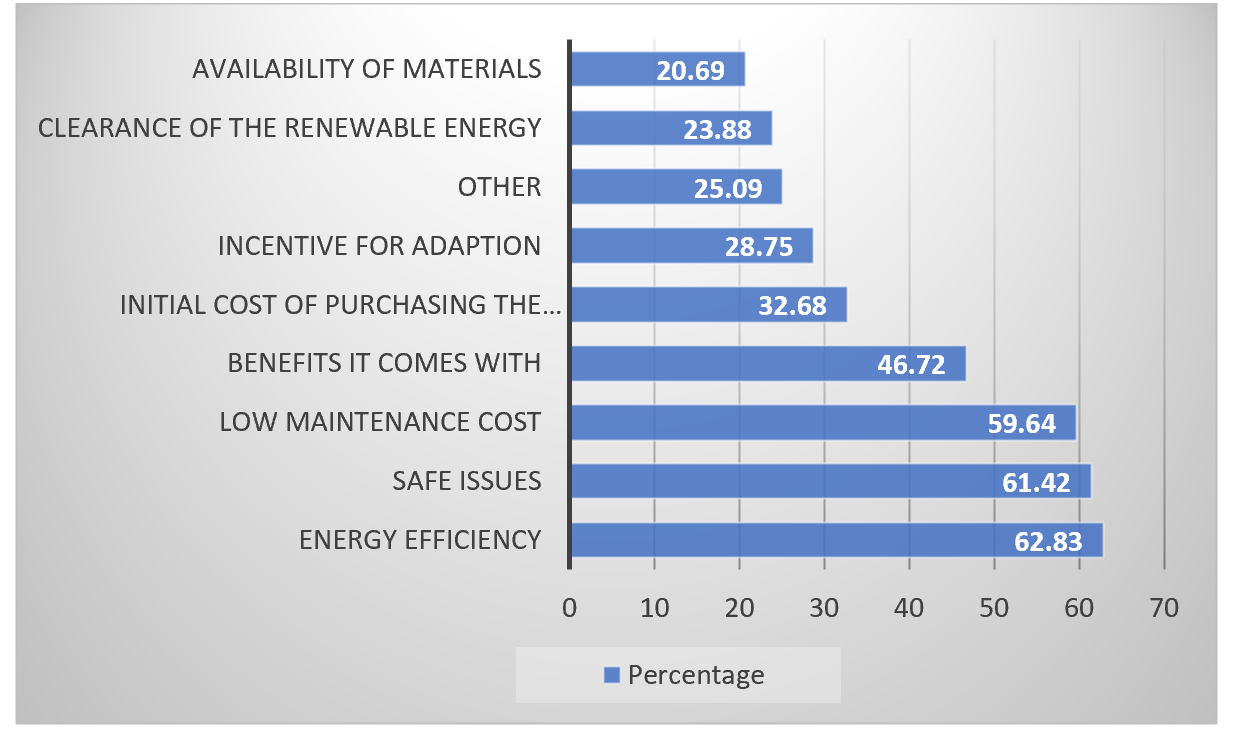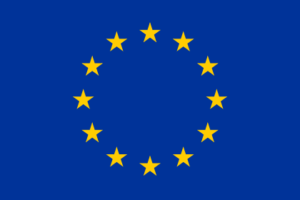Written by Rhona Nakirya Ssemakula
ARUWE Uganda – Action For Rural Women’s Empowerment
Over the past 15 months, our partners from Action for Rural Women’s Empowerment (ARUWE) have been working closely with rural agricultural communities in Uganda. This initiative aims to provide local farmers with the skills and knowledge necessary for them to adopt off-grid renewable energy solutions and provide the alternative power they need to run their agricultural operations. It is the hope of the Step Change project that by shifting away from more conventional power generation, these communities will achieve greater autonomy, as well as safeguard these smaller agricultural farms from the effects of climate change, corruption and will also provide sustainable energy that will allow these enterprises to become more sustainable in the long-term.
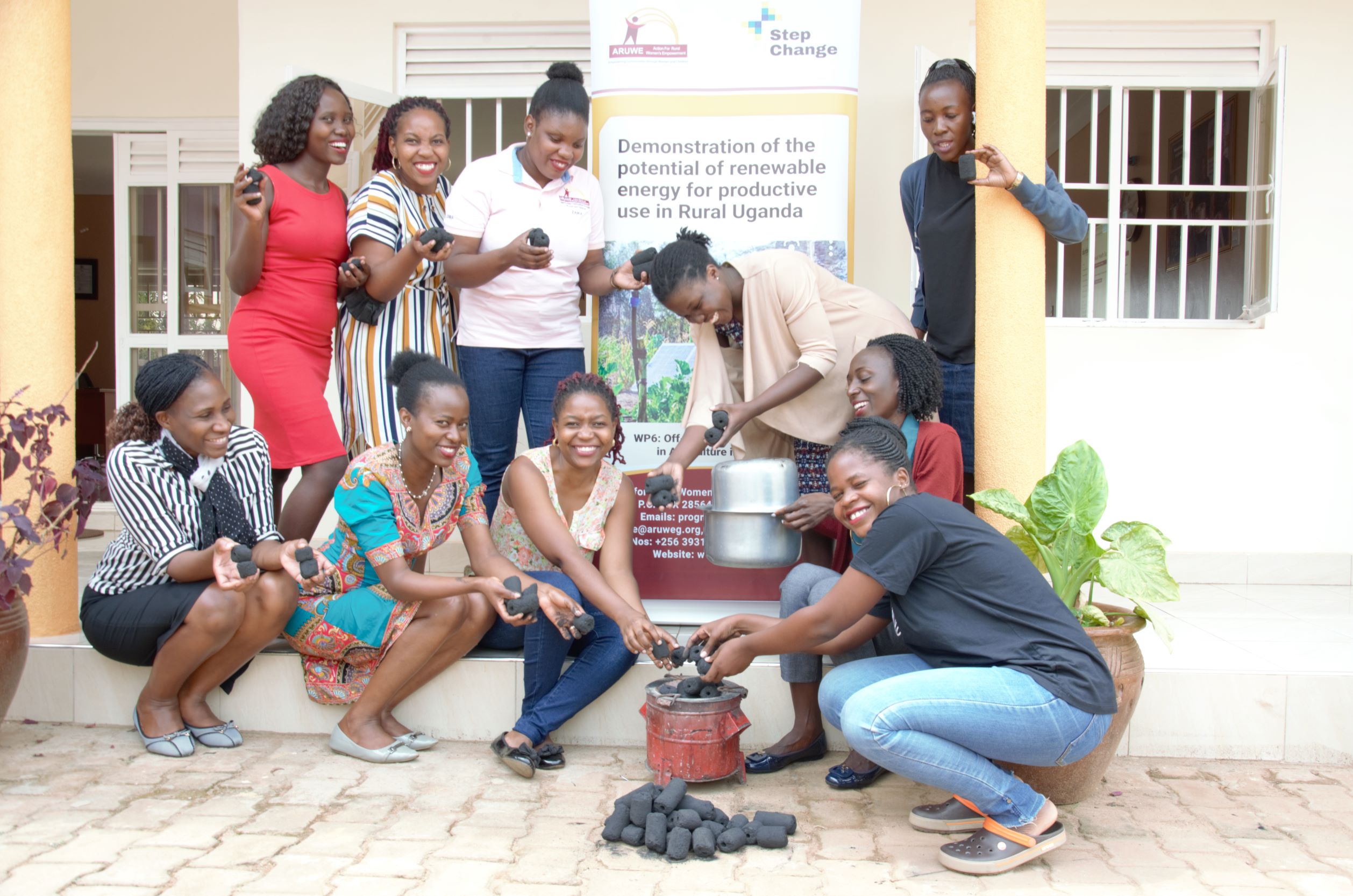
Action for Rural Women’s Empowerment (ARUWE) is a non-profit; Non- Governmental Organization working with marginalised groups of people in Uganda, especially women and girls. ARUWE’s vision is to see a world in which women and girls realise their full potential; with a Mission of empowering women to initiate and manage their socio-economic development processes through strengthening community participation, advocacy, and service delivery.
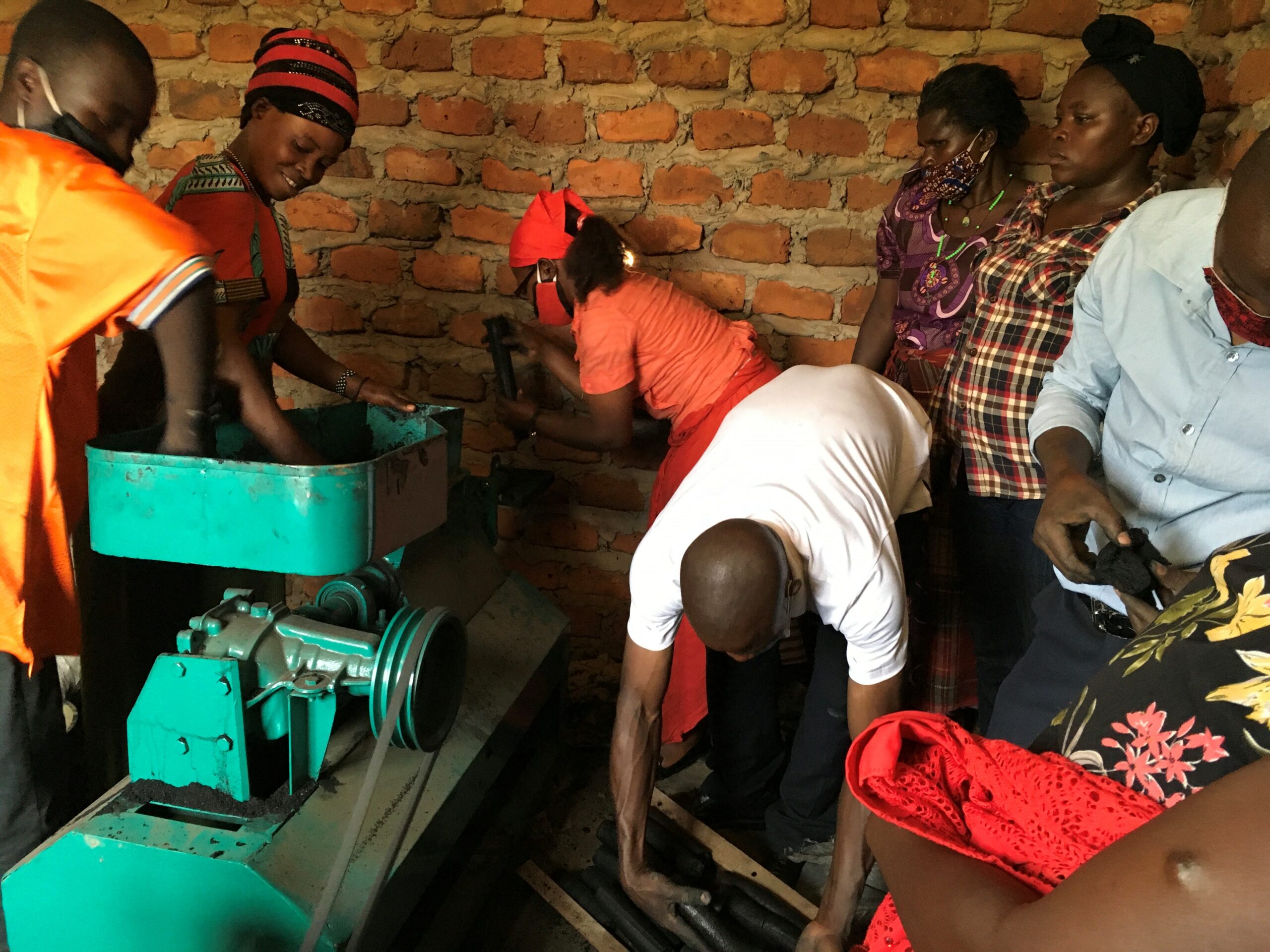
ARUWE is a gender-sensitive, rural-focused organisation that strengthens women’s leadership so that collectively they can break the chains of poverty, patriarchy, class, and sexual repression. ARUWE does this by advocating for rural women’s economic justice, sexual and reproductive health, and rights, promoting education and lifelong learning, enabling communities to adapt to climate change, and challenging the negative impact of rigid and oppressive gender stereotypes.
ARUWE is part of a consortium implementing the Step Change project. This involves the evaluation of collaborative research processes, scientific outcomes, and societal impacts. In Uganda, the project focuses on Off-grid Renewable in Agriculture.
A crucial part of this initiative which is part of the Step Change consortium is to work with local agricultural cooperatives and communities to determine the impact of renewable energy technologies in agricultural production, public perception of the use of renewable energy solutions, and reception to these infrastructural changes in their operations. Therefore in the early stages of this CSI, ARUWE has been reaching out to these communities and conducting interviews and surveys to determine the impact of the technologies in agricultural production, public perceptions of renewable energy, and the potential for upscaling the off-grid renewable energy infrastructure.
A detailed research protocol was done that highlights the objectives of the research, the methodology, the sample size, the tools, the data management procedures, and the dissemination of the research findings. The protocol has a cross-sectional design that utilises mixed methods of data collection capturing both qualitative and quantitative data. The design was implemented in a three-phased manner each addressing a specific study objective. The data collection methods include document reviews, surveys, direct observation, key informant interviews, case study documentation, and focus group discussions. The Institutional Review Board provided us with a clearance certificate that authorises us to proceed with the study.
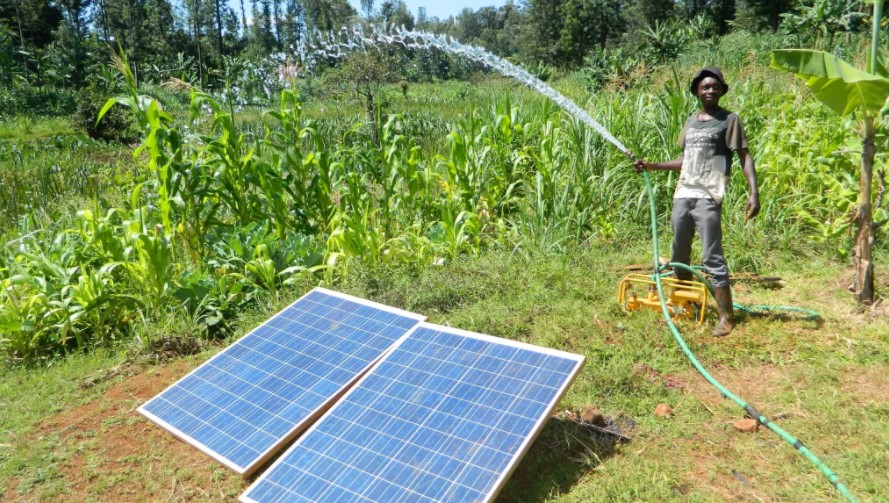
The citizen scientists were purposefully recruited given their level of participation in ARUWE interventions or knowledge concerning renewable technologies in Agricultural production. The recruitment also took into consideration the ethical standard requirements of research, interests, and motivations of the citizen scientists such as their involvement in the formulation of the research design, data collection and analysis, monitoring and communication of the results.
Data was collected on RE sources and technologies used and adopted, uses of the RE, motivation for the adoption of RE, the impact of using RE, as well as factors hindering the adoption of RE use across the communities. The survey questionnaire was also extended to capture the demographic characteristics of the respondents
There is a lot of potential for the Renewable Energy technologies in Uganda and all this requires combined efforts from everyone, including citizen scientists, duty bearers, and other development partners, because we are all affected by the effects of climate change. Uganda is at an added advantage because there is a conducive environment and the will of the population to promote and upscale these technologies, considering that already there are various positive impacts being reported by those that have already adopted them.
Some of the impacts include: the impacts on health and safety, the drive for environmental friendliness, added value to agricultural products thus increased income, the availability of materials, and the provision of time to do other social activities, among other benefits.
The information gathered during this study provides evidence that can be used to lobby for the upscale of renewable technologies for both agricultural production and other sectors. The voices from the people and the impact that renewable energy technologies can now be used as a benchmark for sensitization and adoption of these alternative technologies by other people.
The findings from this research will be documented and disseminated widely at local, national, and international levels to lobby for support for upscaling of these technologies, and we are very excited to see what comes next for Step Change and these communities.
A huge thank you to the Action for Rural Women’s Empowerment (ARUWE) team for sharing their process in the Step Change project, and if you would like to learn more, we spoke to Namuli Margret a Green energy ambassador for our CSI, on the use of renewable technologies in agriculture and households.
Namuli Margret was also January’s Citizen Scientist of the Month, so check out her full profile here!
